
Russia in Fiction has several times repeated our short list of the best writers of Cold War espionage novels. It goes, John le Carré, rhymes with Charles McCarry, and add a couple of Bobs (Littell and Moss).
But have we yet reviewed a Robert Littell espionage novel? It’s a rhetorical question.
Russia in Fiction has reviewed a le Carré (Our Kind of Traitor), a couple of McCarrys (The Secret Lovers and Old Boys), and one and half Moss’s (Moscow Rules, and The Spike co-written with Arnaud de Borchegrave).
And now we finally get round to reviewing a Robert Littell book, and what do you know, it is not one of his invariably terrific espionage novels. In fact it is not even a book we enjoyed much. But it is a fine novel from the Russia-in-fiction perspective, written by a skilled writer with undeniable panache and wit and knowledge of Russia.
So how does Russia in Fiction find itself, more than three-quarters of the way along our path to reviewing one hundred works of English language fiction that portray Russia, at last writing about one of our favourite writers of Russia-related thrillers, but considering one of his novels that sits outside of that genre?
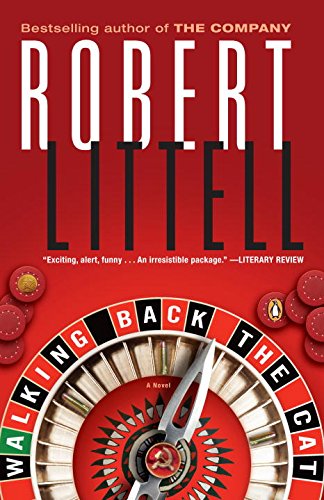
Let’s walk back the cat a little, to find out where this reviewing strategy messed up.
If we are putting Littell in the ‘almost le Carré’ category (and regular readers of this blog know how dismissive we can be of that standard ‘the new le Carré’ back-cover blurb fluff), then it behoves Russia in Fiction to note a converse difference between Littell and le Carré.
Le Carré wrote 26 novels of which only three are deep in Russia-in-fiction territory; of course, as a writer of novels set in the world of international intrigue, many of le Carré’s books, including the Karla trilogy, have Russia in there, but only The Russia House (1989), Our Game (1995), and Our Kind of Traitor (2010) majorly portray Russia.
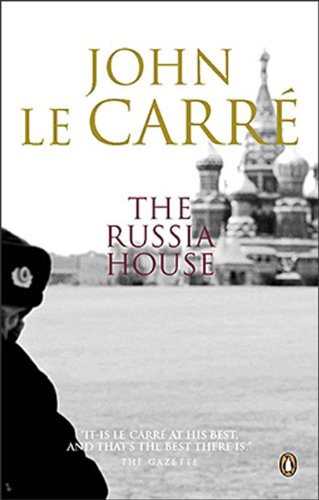
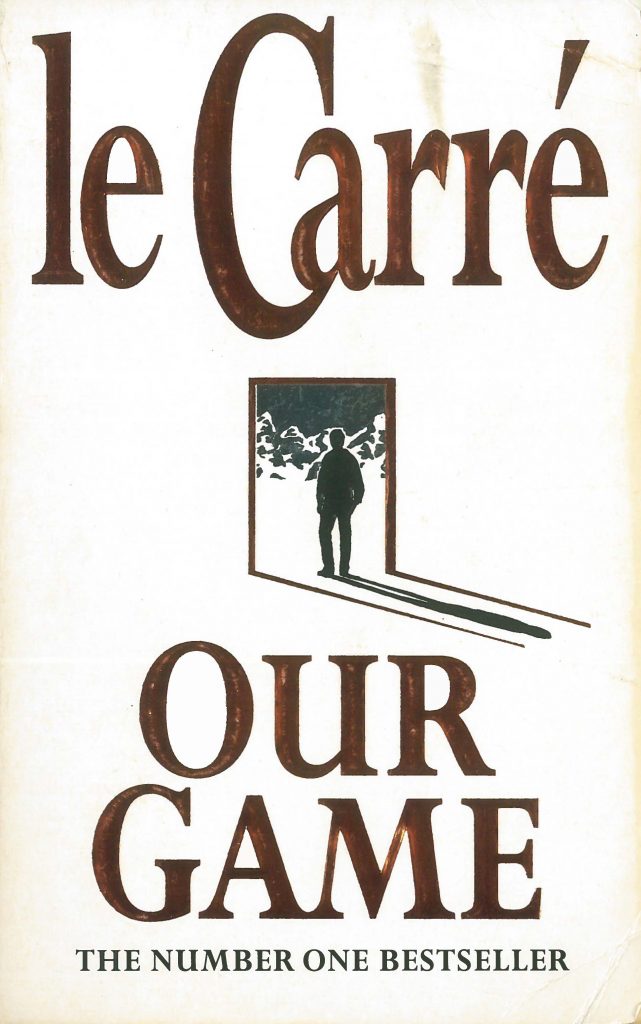
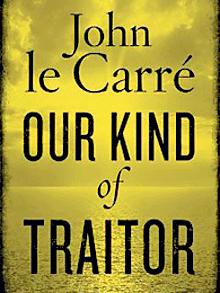
Robert Littell, on the other hand, has written 20 novels so far; the vast majority of them portray Russia in his fiction, but although espionage novels are what he is best known for, a good number of Littell’s Russia-in-fiction books —such as those in the gallery below— are not spy thrillers.
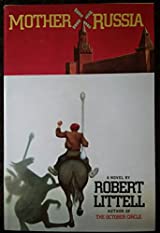
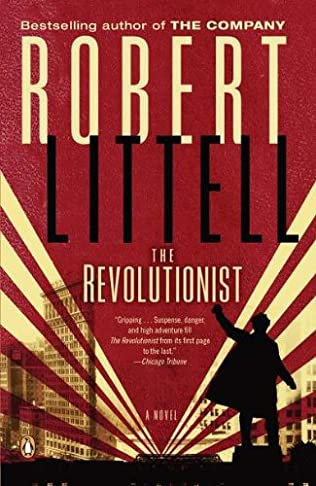
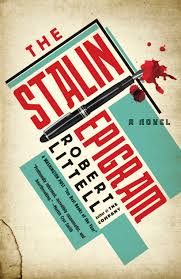
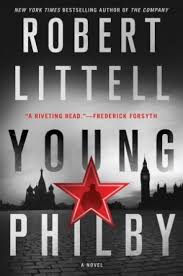

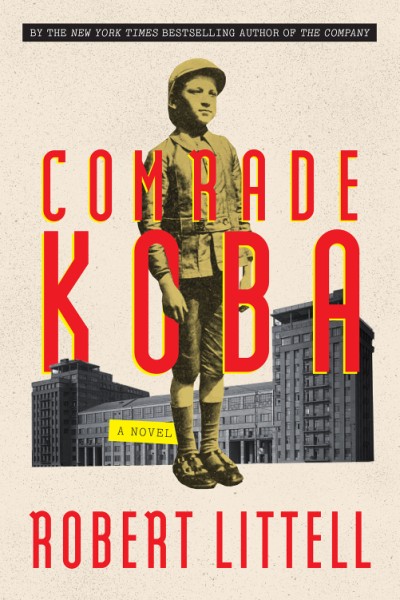
And here at Russia in Fiction, we like to vary things a bit so that not all the reviews are of thrillers. And what is more, to be frank, it is a while since we read, for example, the superb CIA-based Legends (2005), let alone Littell’s many Cold War era spy novels (starting with The Defection of A. J. Lewinter (1973), through to An Agent in Place (1991)).
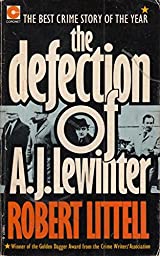
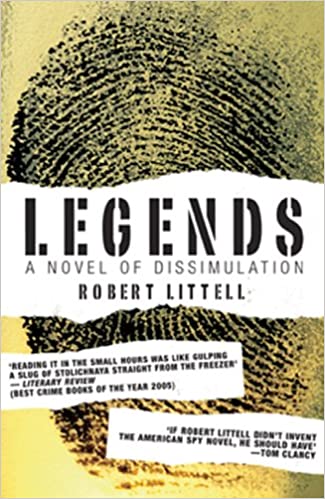
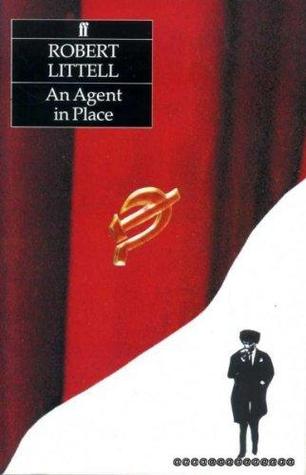
So The Visiting Professor it is.
We are not exactly selling this, are we? To be up front, The Visiting Professor is a well-observed, cleverly written romp, with too much vividly portrayed and variously enacted sex in graphic language in it for our tastes. But hey, we coped, and it’s a matter of taste, so please don’t judge; and we will concentrate the reviewer’s eye on Russia in the fiction.
Lemuel Falk is the titular Visiting Professor, ‘a Russian theoretical chaoticist’ (p. 3) a little surprised that after years of routinely applying for a visa to leave the Soviet Union and go on a study visit abroad, he is suddenly granted such a visa. The reason the visa is granted is that, it being 1993, the Soviet Union no longer exists.

We meet Falk as he gets off the train to be met by the Director of the Institute that has invited him to hold a Visiting Professorship.
‘Welcome to America,’ he declares with manifest sincerity. ‘Welcome to upstate New York. Welcome to the Institute for Advanced Interdisciplinary Chaos-Related Studies … I am delighted the Commie bastards finally let you out.’
‘Out is where they let me,’ Lemuel agrees fervently.
‘To tell the truth, I never thought I’d see you on this side of the Iron Curtain,’
Lemuel mumbles something about how there is no Iron Curtain any more.
The Visiting Professor, p. 4
The story line of The Visiting Professor follows Lemuel Falk as he finds his way, in appropriately chaotic fashion for a genius chaoticist, in a small university town in the US after living his life in the controlled world of the Soviet Union.
Falk gets together with a vibrant young hairdresser by the name of Rain Morgan, he gets himself arrested on a demonstration, he is engaged by the police to solve the case of a serial killer who seems be selecting his or her victims at random, his former mistress from St Petersburg turns up out of the blue; these are the selected highlights.
Littell’s comic novel is replete with philosophical banter, kooky characters, and a general stylised and satirical air of confusion that befits its themes of randomness and chaos and God and sex, and indeed that whole sense of an open future after the Soviet collapse, as previous certainties disappear and the pieces of lives are thrown in the air.
Many a Russia-in-fiction novel set in the early 1990s majors on the sense of chaos of those years in Russia. The Visiting Professor does this in a highly original setting and form. The Russian chaos is personified in a Russian chaoticist and moved to what is portrayed as the also chaotic world of small town United States, where post-modern ‘everything goes’ is the norm in academia, sexual mores are similarly open, and a serial killer is a mere sideshow. Of course, The Visiting Professor is exaggerated unreality; such is the nature of satire.
Littell cleverly explores the contrasting attractions or otherwise of Russia and the United States. Falk’s US hosts assume that, given the political chaos back in Russia, he is desparate to stay on and follow up his visiting position by gaining tenure in the United States, rather than hold on to the tenured position he has at the Steklov Institute in Russia.
Back home, his mistress had begged him to stay in Russia.
‘You are trading one chaos for another,’ she told him, ‘in the mistaken belief that someone else’s chaos will turn out to be greener. Your pal Vadim told you American streets are paved with Sony Walkmans. Admit it, Lemuel Melorovich, in your head you know it’s a fiction, but in your heart you think it may be true. In any case, the trip is bound to end badly — you have always been more fascinated by the going than the getting there.’
When this argument failed to impress Lemuel, she trotted out the big guns. ‘People kill for tenure at Steklov. How can you abandon it like that?’
‘Everyone in Russia has tenure,’ Lemuel observed crabbily. ‘The problem is they have tenure in Russia.’
The Visiting Professor, p. 11

Some of the standard tropes of Russians suddenly arriving in the West in the early 1990s play out in comic fashion. For example, the often portrayed experience of the first visit to a western supermarket.
Lenin always claimed that quantity could be transformed into quality. And here, in the aisles of a food store, was the living proof.
Inspecting cans of corned beef and creamed corn and baked beans, Lemuel discovers that his fingertips have grown numb. Examining jars of low-calorie peanut butter and plastic containers of Hershey’s chocolate syrup and vats of Vermont maple syrup, he feels his knees begin to buckle. Suffering from what he suspects may be a terminal case of vertigo, he clings to a shelf, inhales and exhales deeply several times … Disoriented, he plunges on …
At the vegetable counter he fights back tears as he runs his fingers over a crisp iceberg lettuce. He starts to caress a cucumber, but drops it back into the bin when a stout lady with a moustache, pushing a shopping cart heaped with detergents, clucks her tongue at him … At the fruit counter Lemuel completely loses control of his emotions. Seizing a lemon —he has not laid his bloodshot eyes on a lemon in more than two years— he brings it to his nose and sucks in a long, drunken draught of its perfume.
The Visiting Professor, pp. 31-32
Without spelling it out, descriptions of Lemuel’s sensual reactions to shopping serve as a precursor for much of the sexual description to follow.
For most of the book, Lemuel Falk, the Visiting Professor, tries to slip from one system (the Soviet/Russian) to another (the US) whilst living in a semi-detached manner where he is free within himself even whilst being aware of external requirements.
‘I am supposed to look like a Homo chaoticus, as opposed to a Homo sovieticus.’
The Visiting Professor, p. 39
There is never any doubt that it is Homo chaoticus who wins out in this crazily memorable novel. The Visiting Professor reads like Robert Littell took a sabbatical from thriller writing and had himself a genre-hopping ball.